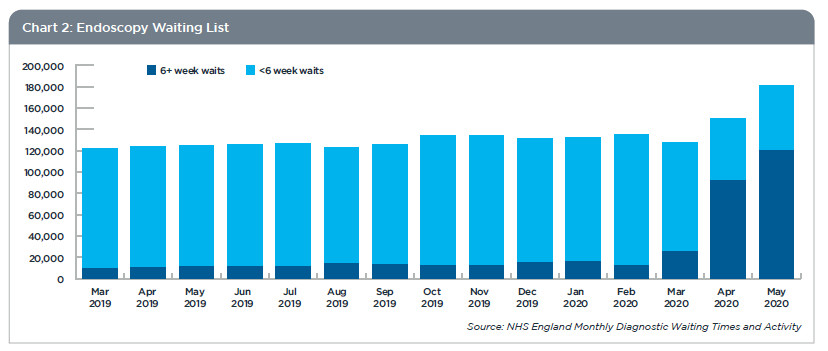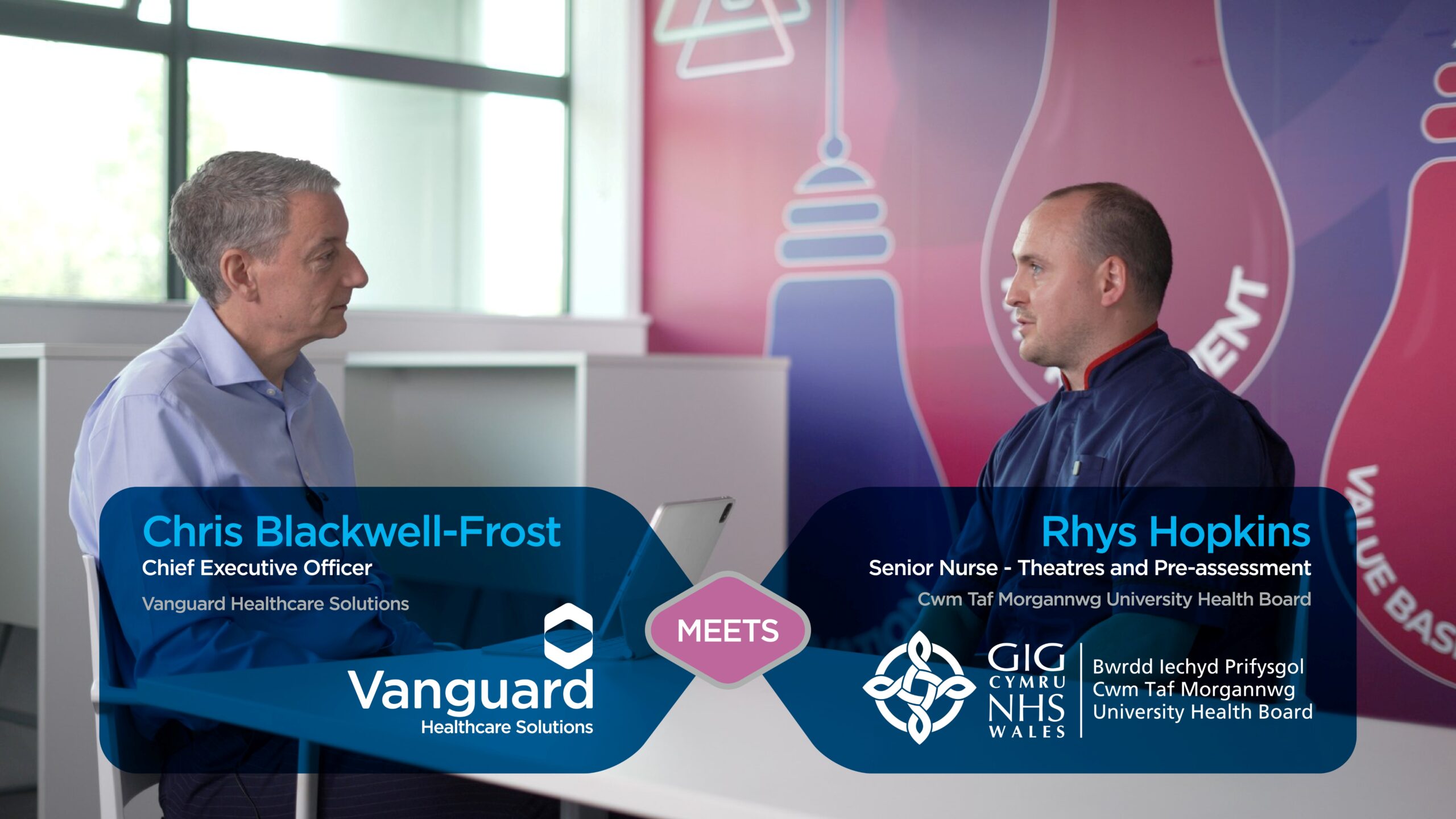Það lítur út fyrir að þú sért í Bandaríkjunum
Við erum með aðra síðu (www.q-bital.com) sem hentar betur staðsetningu þinni
Áætlað er að allt að 10 milljónir manna bíði eftir aðgerð í lok ársins, en stöðvun þjónustu hefur einnig haft áhrif á virkni greiningarprófa, sem leiðir til lengri biðtíma.
Það er að verða ljóst að Covid-19 áhætta mun halda áfram að vera eiginleiki á sjúkrahúsum um fyrirsjáanlega framtíð. Svo þegar NHS sjúkrahús opna smám saman aftur fyrir fyrirhugaðar aðgerðir og prófanir, hvernig er hægt að auka virkni og viðhalda getu til bráðaþjónustu ef um er að ræða aðra bylgju eða staðbundið uppkomu Covid-19? Og hvernig getum við komið í veg fyrir að biðlistar aukist umfram stjórn?
Nýlegt blað skrifað af Vanguard í samstarfi við 18 vikna stuðningur , skoðar hvernig sveigjanleg aðstaða og mönnunarvalkostir geta veitt lausn til að endurræsa verklag á öruggan hátt, sem og þá viðbótargetu sem þarf til að stjórna biðlistum.
Áhrif heimsfaraldursins á virkni greiningarprófa mátti sjá frá febrúar og áfram, þegar virkni dróst aðeins saman, fylgt eftir með verulegri lækkun í mars og enn meiri lækkun í apríl, þar sem öllum ónauðsynlegum aðgerðum var hætt eða frestað.
Í speglun hefur virkni minnkað verulega. Nýjustu opinberu gögnin sýna að þrátt fyrir að virkni hafi aukist lítillega í maí 2020, fór fjöldi speglana sem gerðar voru í mánuðinum verulega undir eðlileg mörk og var yfir 80% lægri en í maí 2019.
Áhyggjur eru þær að minnkandi virkni muni hafa veruleg áhrif á greiningu og meðferð krabbameins í meltingarvegi. Seinkun á krabbameinsgreiningum getur dregið úr meðferðarmöguleikum og getur verið lífshættuleg, í ljósi þess hversu seint stig greining hefur slæm áhrif á dánartíðni.
Samtals, 180.000 sjúklingar biðu eftir speglunarskoðun í Englandi í maí, samanborið við 120-130.000 stigið sem hefur verið grunngildi síðustu 12 mánuði. Þó að við höfum enn ekki séð full áhrif á fjölda fólks sem bíður eftir aðgerð, hafa áhrifin á hversu lengi sjúklingar bíða strax.
Um 66% af öllum þeim sem voru á biðlista, um það bil 120.000 sjúklingar, höfðu beðið í meira en 6 vikur eftir speglunarskoðun í maí 2020 - á móti samtals 9% í maí 2019 og markmiðið var 1%. Og þetta er áður en tekið er tillit til seinkaðra tilvísana.
Hraðinn sem hægt er að hefja aðgerðir á að nýju getur haft mikil áhrif þar sem nýir sjúklingar bætast á biðlistann í hverri viku og biðtími þeirra sem þegar eru á honum eykst. NHS Trusts standa frammi fyrir fjölda stórra hagnýtra áskorana við að endurræsa speglanir, þar á meðal minni framleiðni og erfiðleikar við að búa til nægilega aðskildar leiðir og hingað til hefur endurræsingin gengið hægt.
Þó að afar erfitt verði að ná fram endurbótum á skilvirkni á þessu stigi þar sem framleiðni er mun minni en venjulega, gæti afköst aukist með breytingum á tímasetningu til að hámarka notkun núverandi aðgerðaherbergja. Þrátt fyrir að núverandi takmarkanir þýði að ekki sé hægt að draga úr stöðvun á milli mála, þá eru fyrri byrjun, seinna lýkur, helgar- eða jafnvel sólarhringsaðgerðir valkostir sem gætu komið til greina. Útvegun utanaðkomandi starfsfólks gæti gert þetta að raunhæfri lausn.
Í Skotlandi, þar sem um 19.000 manns bíða nú eftir speglunarskoðun, hefur ríkisstjórnin tilkynnt að þau séu að hefja þjónustu að nýju með hjálp farsíma speglunareininga. Sveigjanlegar heilsugæslulausnir eru einnig notaðar til að veita viðbótargetu og endurræsa aðgerðir á öruggan hátt á mörgum sjúkrahúsum víðs vegar um England. Farsímar speglunarsvítur td hafa aðskilda inn- og útgöngustaði, hafa innbyggt rými á batadeild og afmengunaraðstöðu, og einnig er hægt að stilla það til að hýsa sér móttökusvæði, hvíldarsvæði starfsmanna og búningsklefa. A skurðstofu með laminar flow , sem getur náð sífellt hærri tíðni loftbreytinga, sem leiðir til minni niður í miðbæ milli tilvika, getur einnig veitt tilvalið aðstöðu til að framkvæma speglunarskoðun.
Hægt er að setja upp farsíma- eða einingaspeglunarsvítur mjög fljótt til að veita fullkomna, sjálfstæða og algjörlega aðskilda „kalda“ síðu. Aðstaðan getur verið staðsett á spítalasvæðinu til að lágmarka truflun og Covid-19 áhættu fyrir sjúklinga og fullvissa þá um að það sé óhætt að fara í aðgerðir. Ef þörf krefur er einnig hægt að útvega tímabundnar einingar með reyndu og nægilega þjálfuðu klínísku starfsfólki.
Líklegt er að þörfin á að sinna COVID-19 sjúklingum eða viðhalda viðbúnaðarstigi muni haldast í einhvern tíma, hugsanlega yfir vetrartímann og fram á næsta ár. Í ljósi þeirrar staðreyndar að framleiðni mun minnka á þessum tíma, sem hefur veruleg áhrif á afkastagetu og væntanlegt innstreymi nýrra tilvísana sem búist er við, er líklegt að biðlistar fyrir speglanir haldi áfram að stækka í fyrirsjáanlega framtíð.
Með því að nota 2019 tölurnar sem viðmið gæti áætlaður eftirbátur á tilvísunum á tímabilinu mars-maí verið á bilinu 270.000, þar sem tilvísanir í júní munu einnig haldast lágar. Þetta mun hafa veruleg áhrif á biðlista á næstu mánuðum, þar sem heilsugæslur hefjast að nýju og tilvísunum fer að fjölga aftur í eðlilegt horf.
 Jafnvel eftir Covid-19 verður biðtími mikill og ljóst að þörf verður á meiri afkastagetu. Sveigjanlega innviði og sveigjanlegar starfsmannalausnir, eins og þær sem Vanguard og 18 vikna stuðningur býður upp á, er hægt að setja upp fljótt til að veita NHS sjúkrahúsum viðbótargetu og stuðning, hvar sem er.
Jafnvel eftir Covid-19 verður biðtími mikill og ljóst að þörf verður á meiri afkastagetu. Sveigjanlega innviði og sveigjanlegar starfsmannalausnir, eins og þær sem Vanguard og 18 vikna stuðningur býður upp á, er hægt að setja upp fljótt til að veita NHS sjúkrahúsum viðbótargetu og stuðning, hvar sem er.
[file url="/content/uploads/2020/08/Restarting-Endoscopy-Paper-July-2020.pdf"]Sæktu blaðið okkar um endurræsingu endoscopy[/file]



Vanguard Healthcare Solutions
Eining 1144 Regent Court, The Square, Gloucester Business Park, Gloucester, GL3 4AD

Við erum með aðra síðu (www.q-bital.com) sem hentar betur staðsetningu þinni